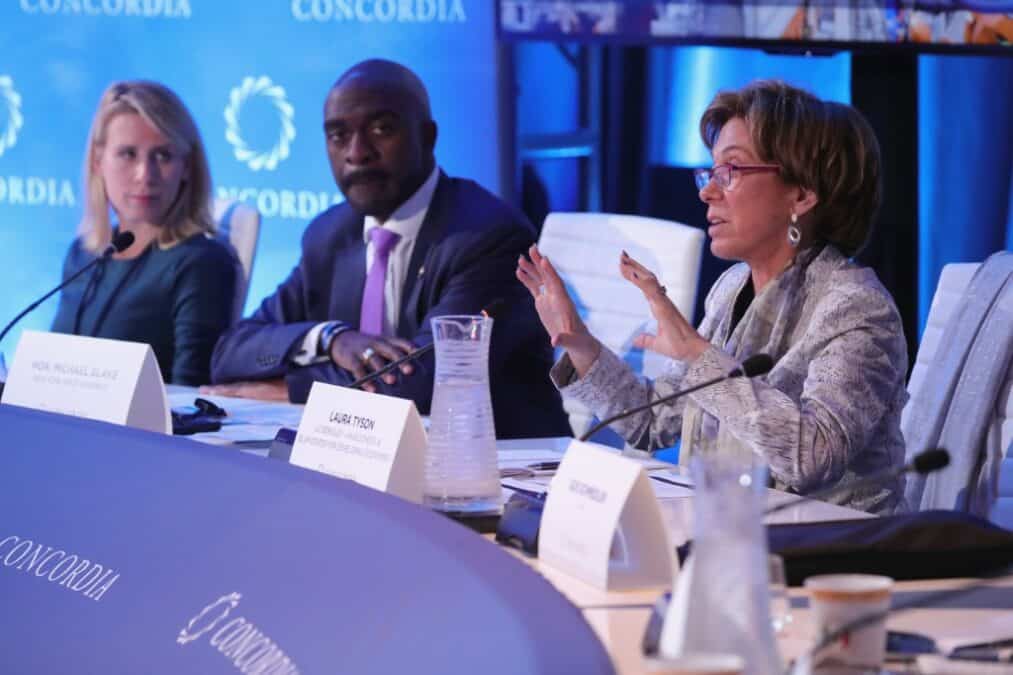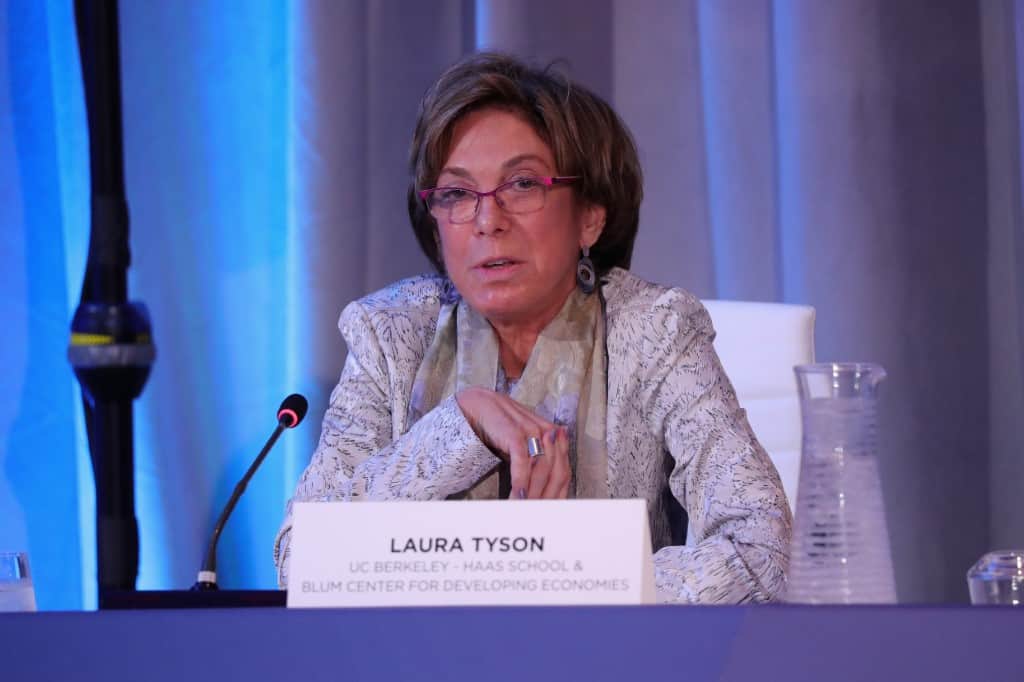DAVOS, Switzerland — There is a lot of uncertainty about the macroeconomy in 2023, with economists predicting more interest rate increases and a chance of a recession, Laura D’Andrea Tyson, a distinguished professor at the Haas School of Business, University of California, Berkeley, told TRENDS in an exclusive interview.
Regarding the US-Middle East relations, Tyson said there is significant technology development going on in the climate space in the UAE, which will not only help reduce carbon emissions per unit of oil but also generate alternative energy. She also sharing her insights on the US economy, and the major takeaways from the DAVOS summit.
Excerpts
What are your predictions for 2023 and what would be the shape of the global economy?
There is lot of uncertainty about the macroeconomy in 2023. It is not clear whether the central banks’ fight against inflation is over. The economists I’ve spoken to were a little more pessimistic than the business community, as they expect more interest rate increases and a fairly significant chance of a recession. Some of them have predicted relatively mild recession, but nonetheless, a recession.
What do you think about the US economy?
The US economy is more complicated. There’s an issue of debt overhang and debt problems in much of the emerging markets and disadvantage health economies. There is a general sense that there will be a slow year. The question, however, is whether it will tip into recession. The uncertainty here is the reentry of China into the global economy. This may prove to be a gross stimulus. However, it may also result in higher energy prices, which would actually slow the rest of the world economy.

Do you think the US would look more outward as people talk about its diminishing global role?
The US business community remains outward looking. The US Congress, particularly the House of Representatives, is quite inward-looking. I don’t anticipate any major changes in legislation that would affect the degree of inward versus outward. We have had talked a lot about it. The Inflation Reduction Act and the CHIPS Act, for example, have inward elements associated with them. However, they also have pro-growth elements.
A quick word on US-Middle East relations in business and politics.
Last year, I didn’t focus on US economic or political relations with the Middle East. I’ve been much more focused on the risks of US-China policy becoming more confrontational, and now the refraction between the US and Europe on issues such as Iraq. My own view is that I’ve been in my life very impressed by the accomplishments of Dubai and the UAE. I think, therefore, I look to that part of the world for interesting and very significant technology development going on in the climate space. The technology they are working on will not only help in reducing carbon emissions per unit of oil, but also generate alternative energy. Very impressive. My own view is based on my work there in the past, I am optimistic about growth prospects and technological development in the Middle East.
What are the major takeaways from DAVOS summit this year?
A lot of attention was on climate. I’ve been coming here for many years. I remember in the early 2000s when Al Gore, whom I worked with in government when he was not vice-president, would come here, and there would be a very empty attention, a lack of attention to climate. Now, so many of the sessions on policy, or on technology, or on business are about climate. So, I come away optimistic that although the global community, both geopolitically and the business community, has adopted seriously the needs for climate mitigation and climate adaptation. This was my big positive takeaway from the meeting.








